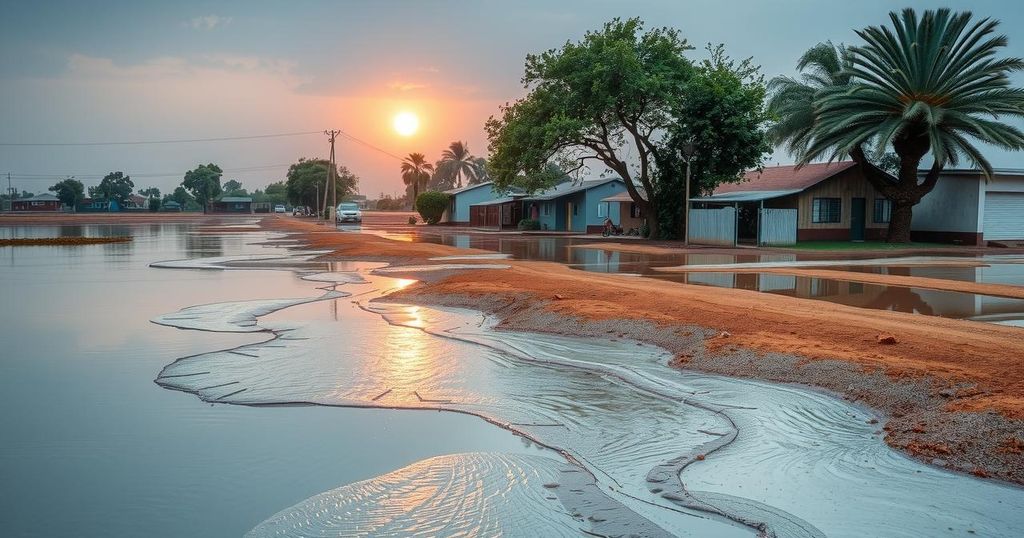A recent study indicates that extreme flooding in the Sahel is set to increase in frequency and intensity due to climate change. Enhanced activity of African easterly waves (AEWs) is linked to rising temperatures, which could affect rainfall patterns and Saharan dust transport. The implications are significant for regional climate and weather patterns as the 21st century progresses.
A recent study reveals that the frequency and intensity of extreme flooding events in the Sahel region of Africa are expected to escalate in the context of a warming climate. The researchers, utilizing a combination of Earth system models, discovered a noteworthy increase in the activity of African easterly waves (AEWs) by the century’s end, which are pivotal in driving rainfall in drought-prone regions, transporting Saharan dust, and influencing hurricane formation in the Atlantic. The study highlights the connection between climate change and the dynamics of these weather systems, indicating that as global temperatures rise, the changes in AEW patterns will have profound implications for the hydroclimate of the Sahel and the surrounding areas.
The Sahel region of Africa is a critical area particularly sensitive to climate alterations. African easterly waves (AEWs) play a significant role in modulating weather patterns, impacting rainfall distribution during the West African monsoon and contributing to tropical cyclone development. These waves transport Saharan dust and influence the onset and severity of flooding events. Understanding how climate change affects AEWs is vital for predicting future climate impacts in the Sahel, a region that already faces extreme weather challenges.
The increasing activity of African easterly waves signifies a concerning trend in the Sahel’s hydroclimate under climate change. As these weather phenomena intensify, the region is likely to experience more frequent and severe flooding events. This underscores the urgency of understanding the consequences of climate change on weather systems in the Sahel, which could exacerbate existing vulnerabilities within the region.
Original Source: www.downtoearth.org.in






